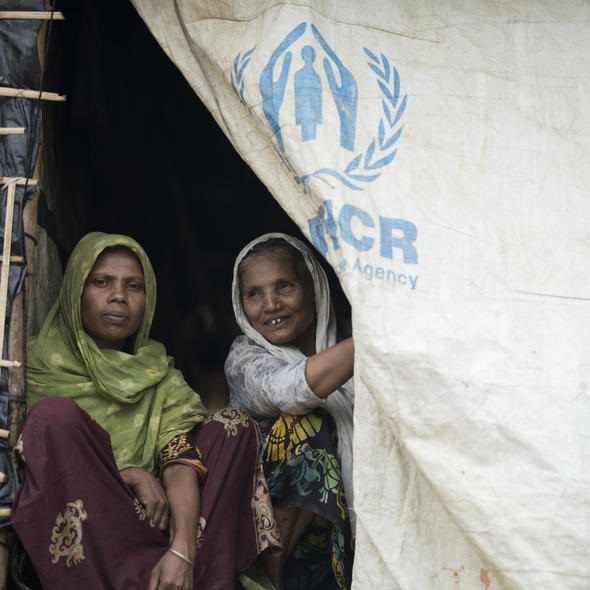Joint Multi Sector Needs Assessment: Cox’s Bazar, Rohingya Refugee Response – August 2020, Host Community
Bangladesh, 2020
Get MicrodataIdentification
UNHCR_BGD_2020_JMSNA_HostCommunity_v2.1
Joint Multi Sector Needs Assessment: Cox’s Bazar, Rohingya Refugee Response – August 2020, Host Community
| Name | Country code |
|---|---|
| Bangladesh | BGD |
Other Household Survey [hh/oth]
Since August 2017, an estimated 745,000 Rohingya refugees have arrived in Cox’s Bazar, Bangladesh, increasing the total number of Rohingya refugees to more than 860,000.1 The presence of the refugee communities has raised concerns over local environmental degradation, falling wages and rising prices, exerting additional pressures on localities where public services and infrastructure were already lagging behind the national average.2 As the crisis moved beyond the initial emergency phase, comprehensive information on the needs and vulnerabilities of affected host communities is needed in order to inform the design and implementation of effective inter-sectoral programming.
Against this background, a Joint Multi-Sector Needs Assessments (J-MSNA) was conducted in the host community to support detailed humanitarian planning and enhance the ability of operational partners to meet the strategic aims of donors and coordinating bodies. To date, a number of MSNAs have been implemented to support the response. The 2020 J-MSNA aims to provide an accurate snapshot of the situation with the specific objectives of (1) providing a comprehensive evidence base of household-level multi-sectoral needs to inform the 2021 Joint Response Plan (JRP); (2) providing an analysis of how needs have changed in 2020 with an emphasis on the impact of the COVID-19 pandemic on multisectoral needs; and (3) providing the basis for a joint multi stakeholder analysis process.
Sample survey data [ssd]
Individuals and households
Version
v2.1: Edited, anonymous dataset for public distribution.
2020
Scope
Household: household information, shelter and NFI, education, health, nutrition, food security and livelihood, WASH, protection, accountability
Individuals: individuals information
| Topic |
|---|
| Health and Nutrition |
| Health |
| Water Sanitation Hygiene |
| Protection |
| Food security |
| Emergency Shelter and NFI |
| Community Services |
| Education |
| Livelihood & Social cohesion |
| Legal Assistance/Protection |
| Basic Needs |
Coverage
Cox's Bazar District
All households within 6 km of UNHCR camps in Ukhiya and Teknaf upazilas.
Producers and sponsors
| Name |
|---|
| UNHCR |
| Inter-sector Coordination Group |
Sampling
Target sample sizes for each Union were based on Bangladesh census data. Due to the absence of a comprehensive sampling frame, a sampling frame was constructed using partners’ household registration as well as beneficiary databases. The primary source was UNHCR survey data covering host community populations living within 6 km from UNHCR camps. The proportion of the sample for each Union drawn from this database was equal to the proportion of households from the Union included in the database. The remaining share of the sample was drawn from IOM and UNHCR beneficiary lists, covering to the degree possible areas within the targeted Unions not included in the UNHCR survey data. Additional buffer points were sampled to account for instances of non-eligibility or non-response. As interviews were conducted over the phone, with phone ownership known to be more prevalent among men, to ensure adequate representation of female respondents, female-headed households were sampled proportionately to their representation in the databases
Roughly 400 surveys were completed per Upazila to maintain a 95% confidence level and 5% margin of error in each Upazila. However, when aggregating findings up to the overall response level for all host community members included in the sampling frame, surveys must be weighted to account for the unequal distribution of households between the two Upazailas.
Survey instrument
Household: household information, shelter and NFI, education, health, nutrition, food security and livelihood, WASH, protection, accountability
Individuals: individuals information
Data collection
| Start | End |
|---|---|
| 2020-07-28 | 2020-08-13 |
| Name |
|---|
| REACH |
Due to restrictions on movement, access to camps and face-to-face interviews as part of the COVID-19 preventative measures,
all interviews were conducted via the phone. This created some challenges and limitations:
• Given expected poor connectivity and the lack of personal interaction during a phone interview, questionnaire size was limited to avoid losing
respondents' attention.
• As privacy cannot be ensured during phone interviews, in order to avoid creating risks to respondents, sensitive topics were not included in
the assessment.
• As phone ownership is more prevalent among men, a lower proportion of female respondents were reached than might have been reached
during an in-person survey.
Data processing
Each day, data checking and cleaning was conducted according to pre-established standard operating procedures, including outlier checks, correct categorisation of "other" responses, and removal and/or replacement of inaccurate records. All changes to the dataset were documented in a cleaning log.
Data Access
| Name | Affiliation | |
|---|---|---|
| Curation Team | UNHCR | microdata@unhcr.org |
UNHCR (2020) Joint Multi Sector Needs Assessment: Cox's Bazar, Rohingya Refugee Response July Augusut 2020. UNHCR microdata library: https://microdata.unhcr.org
Metadata production
UNHCR_BGD_2020_JMSNA_HostCommunity_v1.0_DDI
| Name |
|---|
| UNHCR |
2020-12
Metadata version
Version 1.0 (December 2020)
